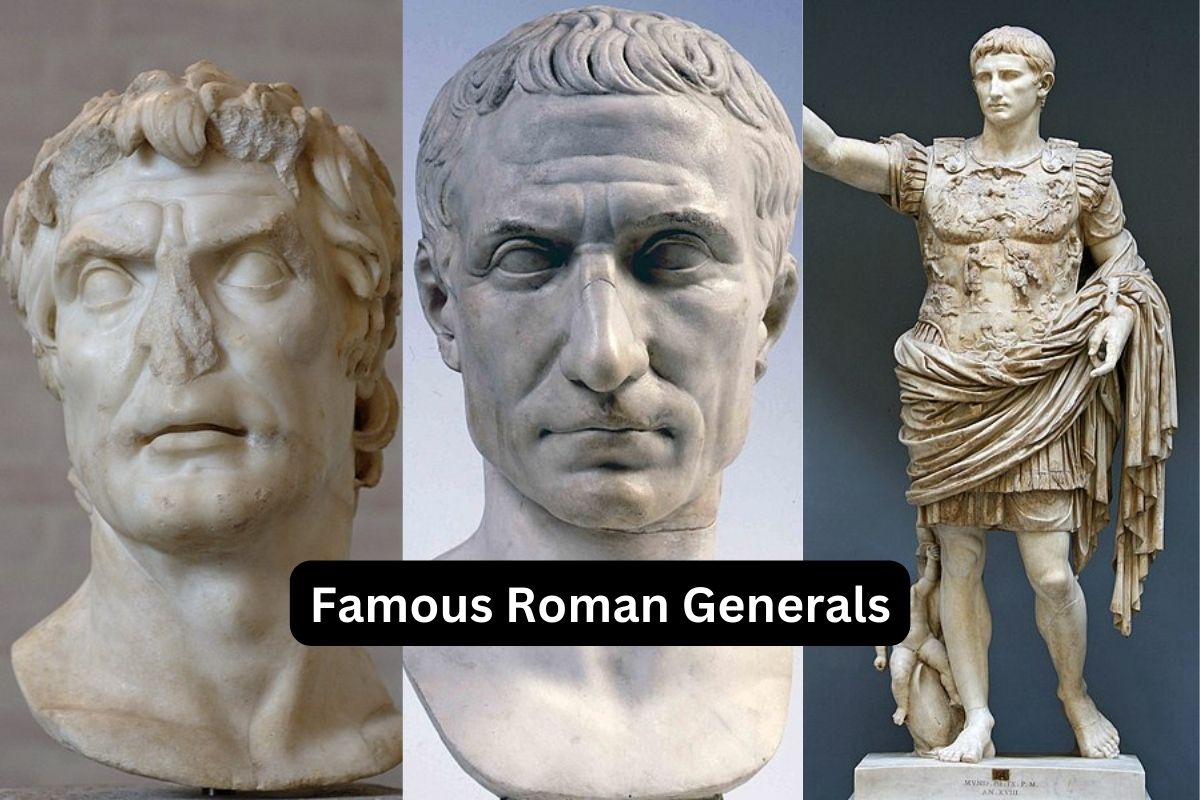Roman generals were the military leaders who commanded the armies of ancient Rome. They were responsible for planning and executing military campaigns, leading soldiers into battle, and making strategic decisions that could determine the fate of the Roman Empire.
Many of these generals achieved great feats of military conquest, and their names have become famous throughout history.
They were known for their bravery, tactical skill, and strategic vision, and their exploits have been celebrated in literature, art, and film.
From Julius Caesar to Constantine the Great, the Roman Empire produced some of the greatest military leaders of all time. Their legacy continues to inspire and captivate people around the world today.
Famous Roman Generals
1. Julius Caesar

Julius Caesar was a famous Roman general, statesman, and author who lived from 100-44 BC. He is one of the most well-known figures in Roman history and is famous for his military conquests, political career, and literary works.
As a military commander, Caesar was known for his innovative strategies and tactics, which he used to great effect in his conquests of Gaul (modern-day France) and Britain. He also played a key role in the Roman Civil War, which ultimately led to the downfall of the Roman Republic and the rise of the Roman Empire.
In addition to his military achievements, Caesar was a prolific writer and is credited with several influential works, including his Commentaries on the Gallic War and Commentaries on the Civil War.
Despite his many accomplishments, Caesar’s life was cut short when he was assassinated in 44 BC by a group of senators who feared his growing power and influence. Nevertheless, his legacy has endured, and he is remembered as one of the most important figures in Roman history.
2. Augustus
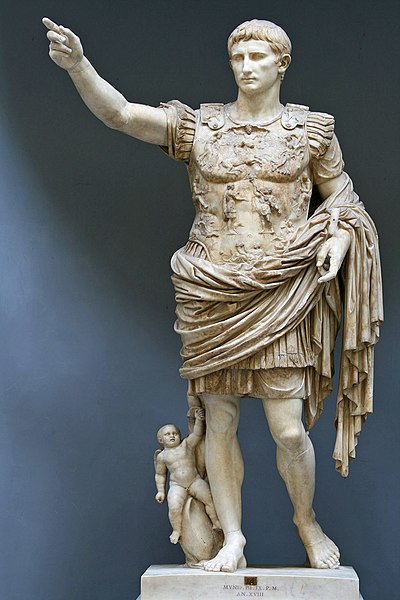
Augustus, born Gaius Octavius, was the first Roman Emperor and one of the most important figures in Roman history. He lived from 63 BC to 14 AD and played a pivotal role in the transformation of the Roman Republic into the Roman Empire.
As a military commander, Augustus was instrumental in securing Rome’s borders and expanding the empire’s territory through a series of successful campaigns. He was also a skilled politician and was able to navigate the complex power struggles of the Roman Senate to establish himself as the undisputed leader of the empire.
Also Read: Augustus Facts
Augustus is perhaps best known for his role in bringing about the Pax Romana, a period of relative peace and stability that lasted for more than 200 years. During his reign, Augustus implemented a number of reforms that helped to strengthen the Roman economy, improve public works and infrastructure, and promote the arts and literature.
Augustus was also a patron of the arts and commissioned many of the great works of Roman literature and architecture that have survived to this day. He died in 14 AD at the age of 75 and was succeeded by his stepson, Tiberius. Despite his sometimes controversial reign, Augustus is remembered as one of the most important and influential figures in the history of the Western world.
3. Scipio Africanus
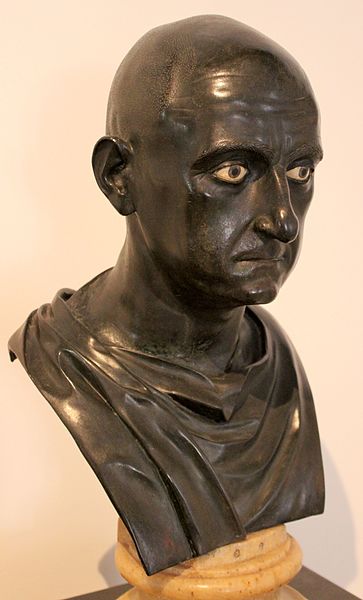
Scipio Africanus, also known as Publius Cornelius Scipio Africanus, was a Roman general and statesman who lived from 236 to 183 BC. He is best known for his role in the Second Punic War (218-201 BC), during which he defeated the Carthaginian general Hannibal at the Battle of Zama in 202 BC.
Also Read: Punic Wars Timeline
Scipio’s victory over Hannibal was a major turning point in the war and helped to establish Rome as the dominant power in the Mediterranean region. After the war, Scipio was elected consul and played a key role in expanding Roman territory in Spain and Africa.
In addition to his military achievements, Scipio was also a skilled politician and diplomat. He was a champion of the Roman Republic and worked to strengthen its institutions and traditions.
Scipio’s legacy has endured over the centuries, and he is remembered as one of the greatest generals in Roman history. His victories over Hannibal and other enemies of Rome helped to shape the course of Western civilization and establish the Roman Empire as one of the dominant powers of the ancient world.
4. Sulla
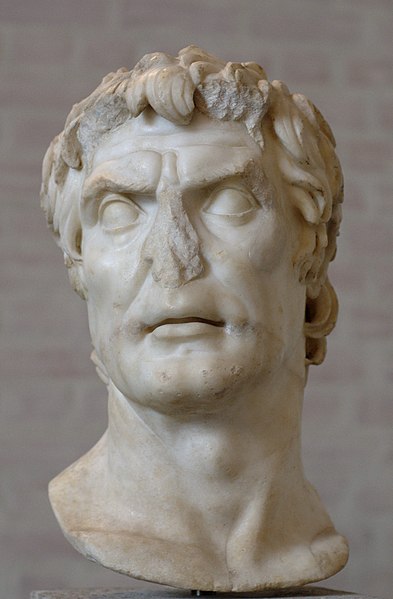
Lucius Cornelius Sulla, commonly known as Sulla, was a Roman general and statesman who lived from 138 to 78 BC. He played a significant role in the late Roman Republic, particularly during the period known as the Sullan Era.
Sulla was a successful military commander and played a key role in the Roman victory over Jugurtha, the king of Numidia, and the defeat of the Cimbri and Teutones. He also served as consul and dictator, during which time he implemented a series of political reforms aimed at strengthening the power of the Roman Senate.
Sulla is perhaps best known for his role in the Sullan Era, a period of political and social upheaval in Rome that followed his return from a military campaign in the east. During this time, Sulla used his power as dictator to purge his political opponents and establish himself as the dominant force in Roman politics.
Despite his controversial reign, Sulla is remembered as a skilled military commander and a shrewd politician. His reforms helped to establish the Roman Republic as a stable and prosperous state, paving the way for the rise of Julius Caesar and the Roman Empire.
5. Gaius Marius
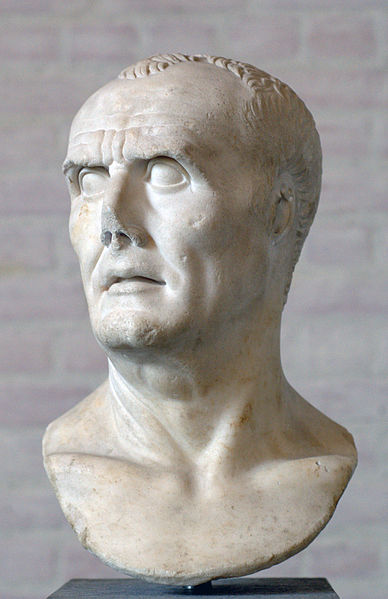
Gaius Marius was a Roman general and statesman who lived from 157 to 86 BC. He played a significant role in the Roman Republic, particularly during the period of civil unrest that preceded the collapse of the Republic.
Marius was a successful military commander and played a key role in the Roman victory over Jugurtha, the king of Numidia. He was also responsible for several reforms that helped to modernize the Roman army, including the recruitment of landless peasants and the establishment of a professional standing army.
Marius is perhaps best known for his role in the Social War, a conflict between Rome and several of its Italian allies. During the war, Marius played a key role in defeating the rebel forces and securing Roman control over Italy.
Despite his many accomplishments, Marius was also a controversial figure. He was involved in a bitter rivalry with his fellow general Lucius Cornelius Sulla, which ultimately led to a period of civil unrest known as the First Civil War.
Despite his sometimes controversial legacy, Marius is remembered as one of the most important figures in Roman history. His military and political reforms helped to transform the Roman Republic and laid the foundation for the rise of the Roman Empire.
6. Pompey
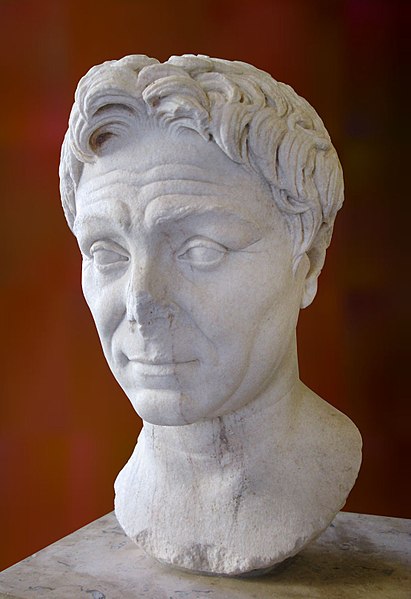
Pompey, also known as Gnaeus Pompeius Magnus, was a Roman general and statesman who lived from 106 to 48 BC. He played a significant role in the late Roman Republic, particularly during the period of civil unrest that preceded the rise of Julius Caesar.
Pompey was a successful military commander and played a key role in the Roman victories over several Mediterranean powers, including the pirates of the Mediterranean and the forces of Mithridates VI of Pontus. He was also involved in a number of political struggles, including the rivalry between Julius Caesar and the Roman Senate.
Despite his many accomplishments, Pompey’s political career was ultimately cut short by his defeat at the Battle of Pharsalus in 48 BC, where he was defeated by Caesar’s forces. He fled to Egypt, where he was assassinated on the orders of the Egyptian pharaoh.
Despite his defeat and untimely death, Pompey is remembered as one of the most important figures in Roman history. His military conquests helped to expand the Roman Empire and secure its borders, while his political struggles helped to shape the course of Western civilization.
7. Septimius Severus
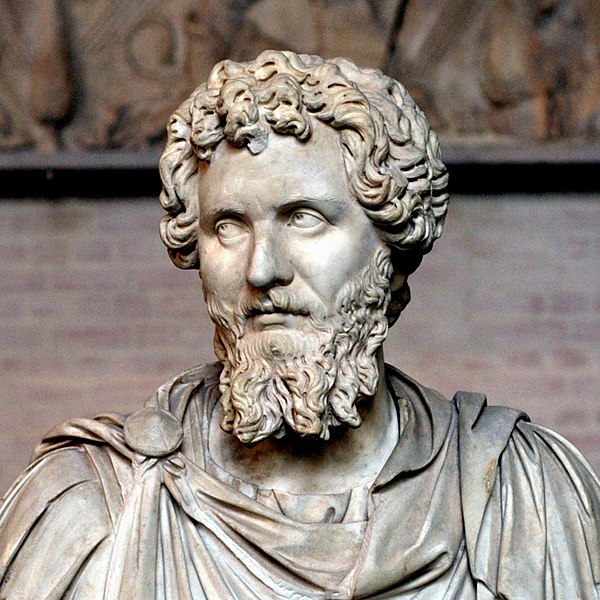
Septimius Severus was a Roman Emperor who lived from 145 to 211 AD. He was born in North Africa and rose to power through military command, eventually becoming the first Roman Emperor from Africa.
Severus was a successful military commander and played a key role in the Roman victory over the Parthians and the consolidation of Roman power in the eastern Mediterranean. He was also involved in several conflicts within the Roman Empire, including the Year of the Five Emperors, a period of civil unrest that followed the death of Emperor Pertinax.
During his reign, Severus implemented a number of reforms aimed at strengthening the Roman economy and military. He also promoted the arts and literature, commissioning several important works that have survived to this day.
Severus is perhaps best known for his role in the development of the Severan Dynasty, a period of relative stability and prosperity that lasted for several decades after his death. His legacy has endured over the centuries, and he is remembered as one of the most important and influential figures in the history of the Roman Empire.
8. Mark Antony
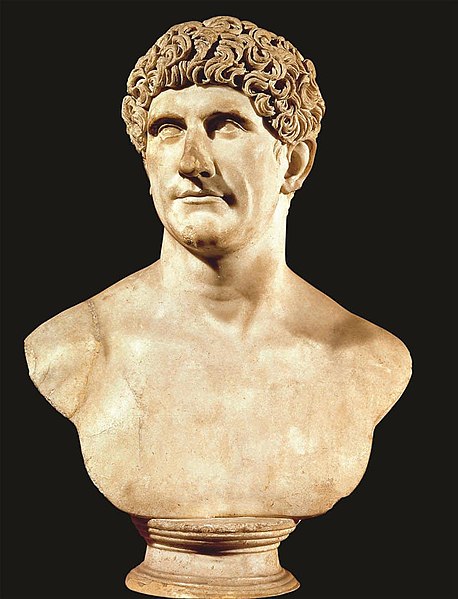
Mark Antony, also known as Marcus Antonius, was a Roman general and statesman who lived from 83 to 30 BC. He played a significant role in the late Roman Republic and was a key member of the Second Triumvirate, a political alliance that included Julius Caesar and Lepidus.
Antony was a successful military commander and played a key role in the Roman conquest of Gaul, as well as in the war against Pompey’s forces in Greece. He was also involved in a number of political struggles, including his rivalry with Octavian, who would later become the Roman Emperor Augustus.
Despite his many accomplishments, Antony is perhaps best known for his relationship with Cleopatra, the queen of Egypt. The two had a passionate love affair that was the subject of much controversy and speculation, particularly among Antony’s political rivals.
Antony’s career ultimately ended in defeat at the Battle of Actium in 31 BC, where his forces were defeated by those of Octavian. He fled to Egypt, where he committed suicide alongside Cleopatra the following year.
Despite his controversial legacy, Antony is remembered as one of the most important and influential figures in the history of the Roman Republic. His military conquests helped to expand Roman power and secure its borders, while his political struggles helped to shape the course of Western civilization.
9. Marcus Vipsanius Agrippa
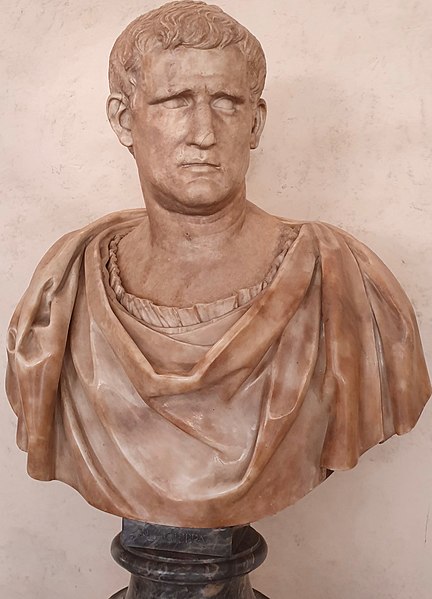
Marcus Vipsanius Agrippa was a Roman statesman and general who lived from 63 to 12 BC. He played a significant role in the reign of Augustus, the first Roman Emperor.
Agrippa was a skilled military commander and played a key role in the Roman victory over Mark Antony and Cleopatra at the Battle of Actium in 31 BC. He also oversaw several successful military campaigns in Spain and Gaul.
In addition to his military achievements, Agrippa was also a shrewd politician and diplomat. He served as Augustus’ right-hand man and played a key role in the administration of the Roman Empire. He was responsible for several important public works projects, including the construction of the Aqua Julia and Aqua Virgo aqueducts, which helped to supply the city of Rome with fresh water.
Agrippa’s legacy has endured over the centuries, and he is remembered as one of the most important figures in the history of the Roman Empire. His military conquests and political achievements helped to establish Rome as the dominant power in the Mediterranean world, while his public works projects helped to improve the quality of life for the people of Rome.
10. Trajan
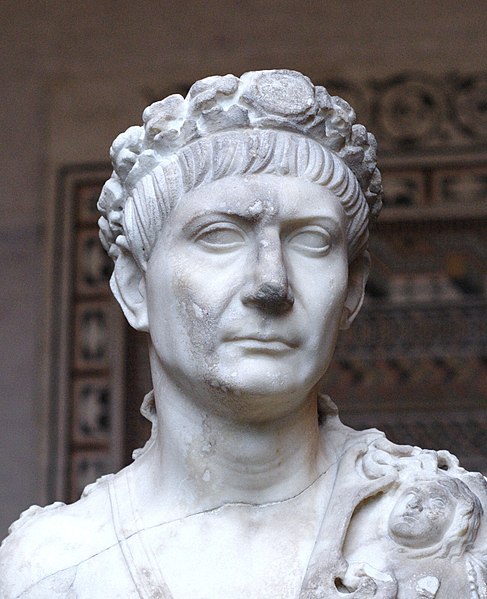
Trajan, born Marcus Ulpius Traianus, was a Roman Emperor who lived from 53 to 117 AD. He was one of the greatest military commanders and rulers in Roman history and is often considered to be one of the Five Good Emperors.
Trajan was a successful military commander and played a key role in the Roman conquest of Dacia (modern-day Romania) and the expansion of the Roman Empire into the Middle East. He was also responsible for several public works projects, including the construction of Trajan’s Forum and Trajan’s Column in Rome.
In addition to his military and public works achievements, Trajan was also known for his humanitarian policies. He implemented a number of reforms aimed at improving the lives of the common people, including measures to alleviate poverty and support orphaned children.
Trajan’s reign is often considered to be a golden age of the Roman Empire, marked by relative peace and prosperity. His legacy has endured over the centuries, and he is remembered as one of the most important and influential figures in the history of Rome.
